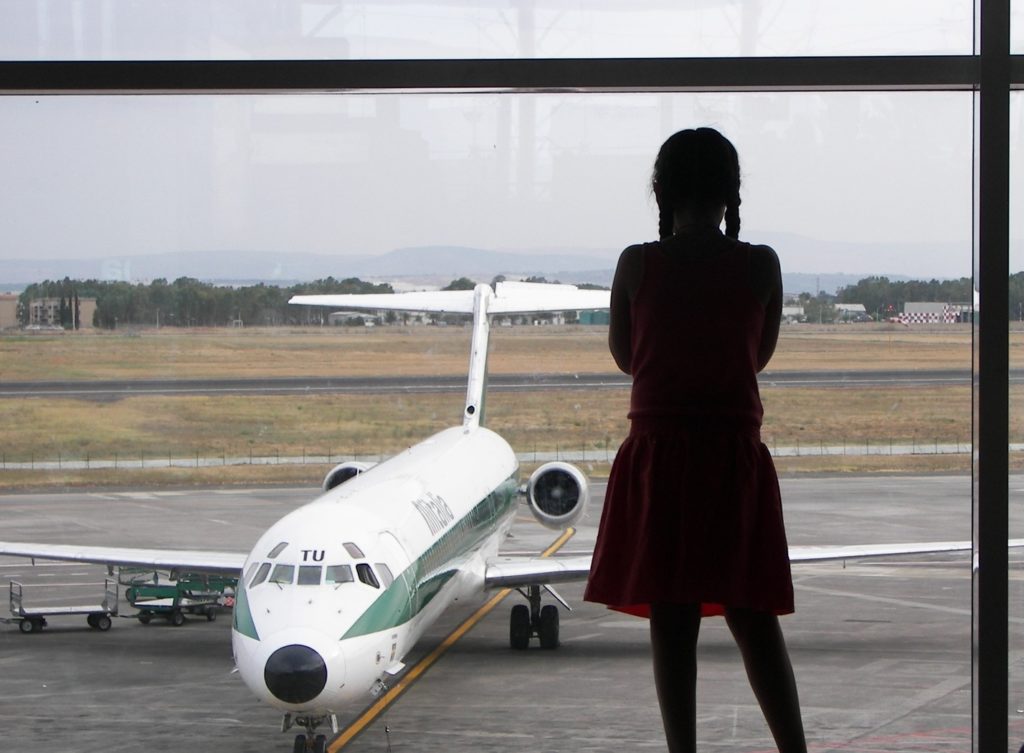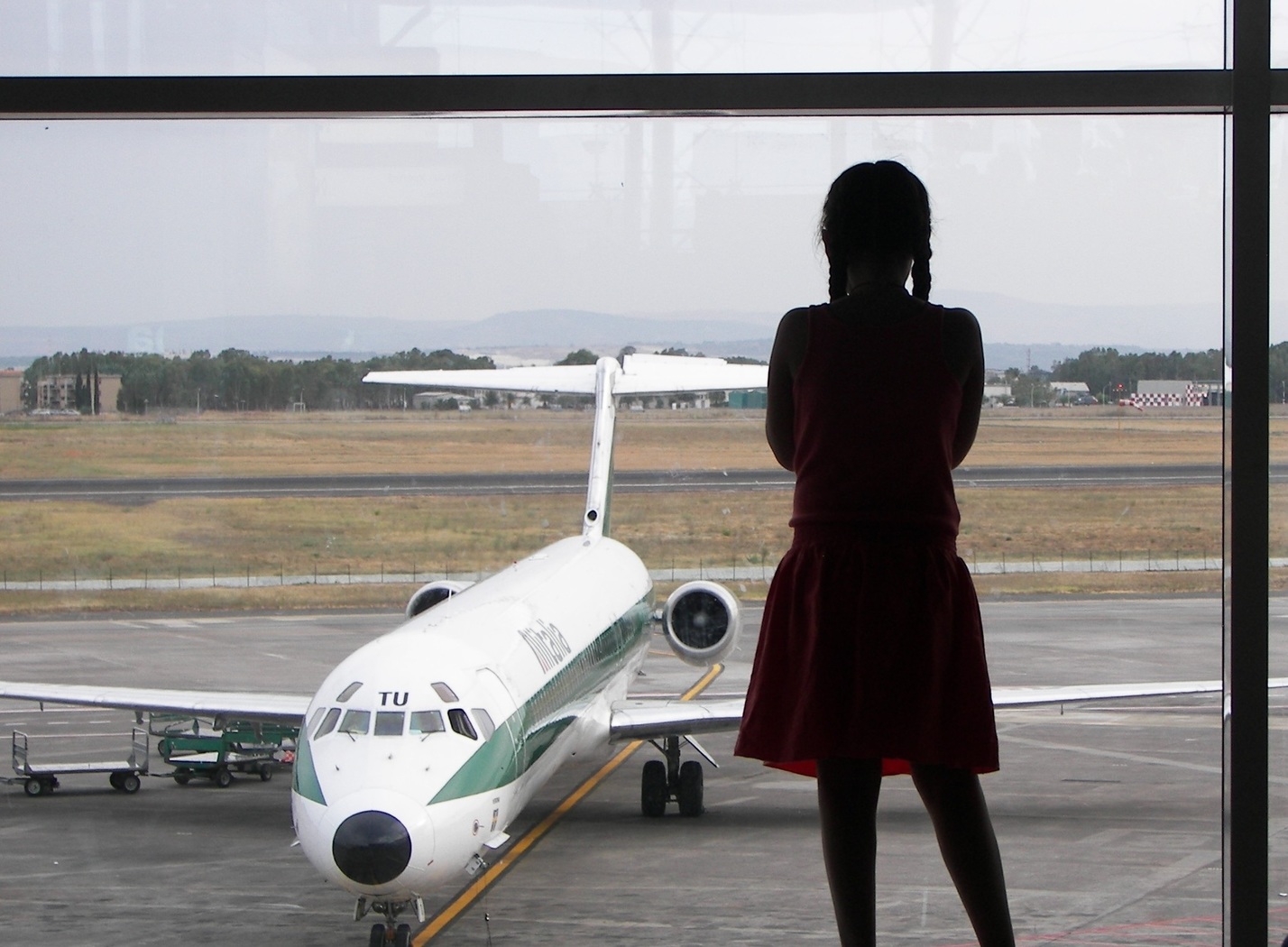Airlines and CDC Clash on Guidelines for COVID-19 Vaccinated Flyers

Airlines are pushing back on the latest advice from the U.S. Centers from Disease Control, asking flyers who have been vaccinated against the COVID-19 virus to avoid air travel. In a statement, carrier consortium Airlines for America stands by their “layered approach” which they suggest significantly reduces the risk of transmitting the virus on an aircraft.
Airlines for America is pushing back against the latest advice from the U.S. Centers for Disease Control (CDC), after they recommended those who are vaccinated against COVID-19 should continue to avoid travel. The Hill reports the conflict is over the latest advice, handed down on Monday, March 8, 2021.
CDC Travel Guidance Remains “Unchanged,” But Airlines for America Pushes Back
In their latest statements, health officials offered new advice on what life might look like once more Americans are inoculated against the novel Coronavirus. According to The Hill, the agency says groups of people who received both doses can gather together indoors without masks, and do not necessarily need to be tested if they come into contact with someone who contracted COVID-19.
However, the CDC fell short of openly endorsing travel once again. Because the group says only nine percent of the U.S. population has received the two-shot vaccine, the public should continue to maintain precautions against the virus. This includes continuing to wear a face covering, practice social distancing, and avoiding unnecessary travel.
“Every time there’s a surge in travel, we have a surge in cases in this country,” CDC director Rochelle Walensky told The Hill. “We would like to give the opportunity for vaccinated grandparents to visit their children and grandchildren who are healthy, and who are local, but our travel guidance currently has been unchanged.”
Airline trade organization Airlines for America immediately fired back against the lack of support for air travel. In their own statement, a spokesperson said that research suggests flyers have a lower risk of contracting the virus than other everyday activities.
“We remain confident that this layered approach significantly reduces risk,” the Airlines for America spokesperson told The Hill. “And are encouraged that science continues to confirm there is a very low risk of virus transmission onboard aircraft.”
The consortium also noted they would continue to work with the CDC on future travel policies “that prioritize the safety and wellbeing of all passengers and employees.”
Scientific Studies are Conflicted on Viral Transmission Aboard Aircraft
In numerous studies, researchers have presented conflicting information about if and how the novel Coronavirus can be spread on aircraft. In a study sponsored by the U.S. Department of Defense and conducted with United Airlines, human analogs showed those who wear facemasks while flying have a reduced risk of spreading or contracting COVID-19. On the other side, a pre-published study from researchers in New Zealand suggested the virus was passed among flyers aboard an Emirates flight.























Vaccination should be required. Period. Just like clothes and shoes. And using the aircraft head. I still remember a couple of my poor schoolmates in the 50's...their parents refused the polio vaccine. They got polio. Those that survived died young. No excuse for non-vaccination.
@Grog I dare to say that you have no idea what you are talking about, and that you are a proponent of silencing those that have different viewpoints. My viewpoints are based strictly in the facts, and those show that N95 masks stop less than 10% of virus particles. Even when virus particles are mixed with liquid microparticles, they get trapped on the mask, and the instant that liquid dries, the virus particles are then free to travel through the mask. Is it a coincidence that masking has shown no impact on stopping the spread of the virus? In hospitals, doctors wear masks for completely different reasons.
The CDC is a political organization. Politics is the first priority, and health/science are farther down the priority list. We need more data and rigorous analyses on ANY recommendations from the CDC or the WHO with respect to ANY virus or ANY vaccine.
In this instance, it would appear that the CDC is basing their advice on data. When more people travel the number of cases rise. Thus they are advising caution. Unfortunately, the data does NOT identify air travel as a primary source. It is global, so it is quite possible that holiday times when there is increased air travel are also when larger groups gather, whether at home or elsewhere, leading to COVID spreading events. The correlation between the increase in cases and air travel is indirect at best. However, we are certainly NOT getting any data from the US airlines either. There is NO information available about the incidence of COVID in cabin crew - which would be invaluable in assessing the risk of in flight transmission. Even that would need to be carefully analyzed as not all of the cabin crew with COVID may have been infected on board... And nothing seems to be available about the number of people who after a flight tested positive and were infectious on board. Canada has these databases freely accessible.... https://www.canada.ca/en/public-health/services/diseases/2019-novel-coronavirus-infection/latest-travel-health-advice/exposure-flights-cruise-ships-mass-gatherings.html We really should be getting better information...
CDC are a bunch of nervous Nellie's. The whole US healthcare administration are both politically driven and totally unimaginative. When the 1st shot delivers 90% protection and the second shot only marginally more (95%) it is clear that the US should do as the UK and move to a first shot strategy to get more of the population vaccinated quicker. This would move us faster to herd immunity and lowering the effective R rate for Covid. But the CDC and other elements of the public health community are fixated on administering their bureaucracy rather than using the technology to restore the country to a normal footing. This is government of the people not government for the people.